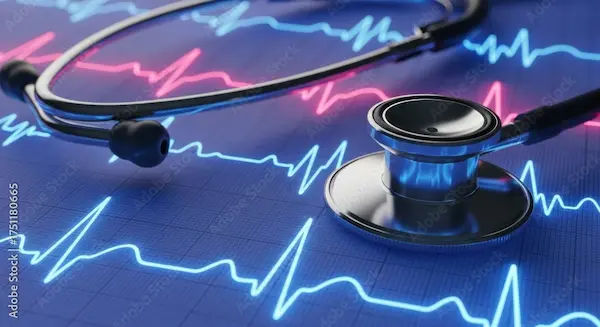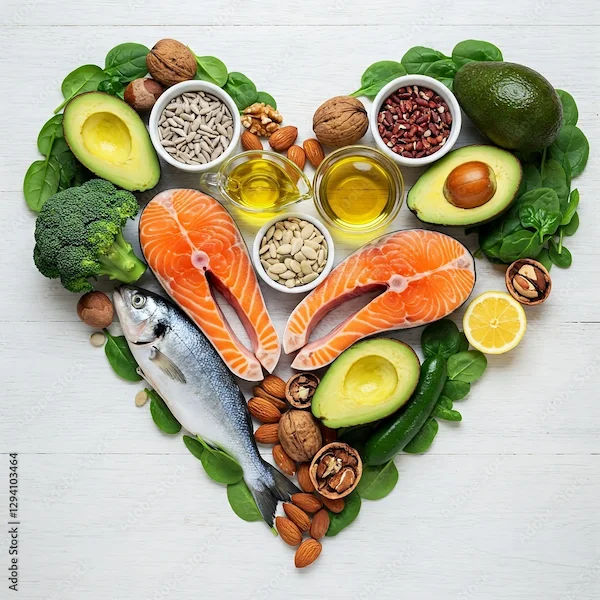Your Heart-Healthy Life; A Practical Guide to Preventing Heart Disease
Discover a practical guide to preventing heart disease with science-backed tips on diet, exercise, lifestyle, and screenings. Learn how daily choices can protect your heart and lower risks.

Written by Dr. Dhankecha Mayank Dineshbhai
Reviewed by Dr. Siri Nallapu MBBS
Last updated on 13th Jan, 2026

Introduction
Heart disease isn’t just a single condition; it's the leading cause of death globally, claiming millions of lives each year. But here’s the powerful truth that often gets lost in the fear: an estimated 80% of all heart disease events are preventable. You are not a passive victim of genetics or fate. Your daily choices wield immense power over your cardiovascular destiny. This comprehensive guide moves beyond just listing risks. We will delve into the why behind heart disease and provide you with a clear, actionable blueprint for heart disease prevention. We'll explore everything from the science of atherosclerosis to the practicalities of building a sustainable, heart-healthy lifestyle that lasts a lifetime, empowering you to take control of your health starting today.
Understanding the Enemy; What is Heart Disease?
At its core, most heart disease involves damage to the heart and blood vessels, most commonly through a process called atherosclerosis. Understanding this process is the first step toward stopping it.
Atherosclerosis; The Silent Clogging of Your Arteries
Imagine your arteries as smooth, flexible pipes delivering oxygen-rich blood throughout your body. Atherosclerosis occurs when these pipes become clogged with a sticky substance called plaque, a combination of cholesterol, fatty substances, cellular waste, calcium, and fibrin (a clotting material in the blood). This buildup happens gradually, over decades, often starting in childhood. Initially, it causes no symptoms, which is why it's so dangerous. You can have "clogged pipes" and feel perfectly fine until a crisis occurs. This silent progression is why understanding the early signs of an unhealthy heart often means understanding the risk factors long before symptoms appear.
From Clogs to Crisis; Heart Attack and Stroke
The real danger arises when a plaque deposit ruptures. Your body mistakes this rupture as an injury and forms a blood clot to seal it. This clot can completely block the already-narrowed artery. If this blockage occurs in an artery supplying the heart, it causes a heart attack (myocardial infarction). If it happens in an artery leading to the brain, it causes an ischemic stroke. This chain of events highlights why managing the underlying causes of plaque buildup is the true cornerstone of prevention.
The Major Controllable Risk Factors You Can Change
While factors like age, family history, and sex influence your risk, they don't determine it. The most powerful levers you control are your blood pressure, cholesterol, and blood sugar levels.
Taming the Silent Killer; High Blood Pressure (Hypertension)
High blood pressure is called the "silent killer" for a reason. It damages the delicate lining of your arteries, making them more susceptible to plaque buildup. The constant force of high pressure strains your heart, causing it to weaken and thicken over time. A normal reading is typically less than 120/80 mm Hg. Lifestyle changes like the DASH diet (Dietary Approaches to Stop Hypertension), reducing sodium, and regular exercise are first-line defenses. If your blood pressure remains high despite these efforts, consult a doctor online with Apollo24|7 to create a personalized management plan that may include medication.
Managing Your Cholesterol; The Good, The Bad, and The Triglycerides
Not all cholesterol is created equal. You need to understand the players:
LDL (Low-Density Lipoprotein): "Bad" cholesterol. It transports cholesterol particles throughout your body and can lodge in artery walls.
HDL (High-Density Lipoprotein): "Good" cholesterol. It acts like a scavenger, picking up excess cholesterol and taking it back to your liver.
Triglycerides: The most common type of fat in your body. High levels can also contribute to arterial hardening.
The goal isn't to eliminate cholesterol but to create a healthy balance: low LDL, high HDL, and low triglycerides. This is achieved through diet, exercise, and, if necessary, medication.
Keeping Blood Sugar in Check; The Diabetes-Heart Disease Link
Consistently high blood sugar levels from diabetes can damage blood vessels and the nerves that control your heart. People with diabetes are twice as likely to have heart disease or a stroke. Preventing type 2 diabetes through weight management and a healthy diet is one of the most effective strategies for cardiovascular wellness you can adopt. Apollo24|7 offers convenient home collection for tests like HbA1c, a key marker for long-term blood sugar control, making monitoring simple.
Your Daily Defense; Nutrition for a Healthy Heart
Food is your most potent medicine. A heart-healthy diet is not about deprivation; it’s about abundance and delicious choices.
Foods to Embrace; The Heart-Healthy Pantry
Load your plate with:
Fruits and Vegetables: Packed with fiber, vitamins, antioxidants, and minerals. Berries, leafy greens, and oranges are superstars.
Whole Grains: Oats, quinoa, brown rice, and whole-wheat bread provide soluble fiber that helps lower LDL cholesterol.
Lean Proteins: Opt for skinless poultry, fish (especially fatty fish like salmon and mackerel rich in omega-3s), legumes, and nuts.
Healthy Fats: Sources like avocados, olive oil, and nuts help reduce inflammation and improve cholesterol levels.
Foods to Limit or Avoid; The Dietary Culprits
Be mindful of:
Processed Foods: Often high in sodium, unhealthy fats, and refined sugars.
Sugary Beverages: A major source of empty calories that contribute to weight gain and diabetes.
Red and Processed Meats: Limit intake of bacon, sausage, and red meat, which are linked to higher heart disease risk.
Refined Carbohydrates: White bread, pastries, and white pasta can spike blood sugar and triglycerides.
The Sodium Shock; Cutting Back on Salt
Excess sodium pulls water into your bloodstream, increasing blood volume and, consequently, blood pressure. Aim for less than 2,300 mg per day (about one teaspoon of salt). Read labels, over 75% of dietary sodium comes from processed and restaurant foods, not your salt shaker.
The Fat Facts; Saturated vs. Trans Fats
Saturated Fats (found in red meat, butter, full-fat dairy) should be limited as they raise LDL cholesterol.
Artificial Trans Fats (found in partially hydrogenated oils in some fried foods and baked goods) are the worst. They raise LDL and lower HDL. Avoid them completely.
Get Moving; How Exercise Strengthens Your Heart
Physical activity is non-negotiable for prevention. It’s like strength training for your most important muscle.
Aerobic Exercise; Getting Your Heart Pumping
Aerobic activity makes your heart beat faster and improves circulation. The American Heart Association recommends at least 150 minutes of moderate-intensity exercise (like brisk walking, swimming, or cycling) or 75 minutes of vigorous activity (like running) per week. This helps lower blood pressure, manage weight, and reduce stress.
Strength Training; Building a Resilient Body
Don’t neglect strength training! Building muscle mass helps your body manage blood sugar more effectively, improves cholesterol levels, and supports a healthy metabolism. Aim for moderate- to high-intensity muscle-strengthening activities at least two days per week.
Beyond Diet and Exercise; Crucial Lifestyle Factors
The Preventable Cause; Why Quitting Smoking is Non-Negotiable
If you smoke, quitting is the single most powerful thing you can do for your heart. Chemicals in tobacco smoke damage the structure and function of your blood vessels, leading to atherosclerosis. Your risk of coronary heart disease drops dramatically within just one year of quitting.
Stress, Sleep, and Your Heart; The Modern Connection
Chronic stress can lead to behaviors that increase heart disease risk (overeating, poor sleep, smoking) and may directly increase inflammation in the body. Furthermore, poor sleep (less than 7-9 hours per night) is linked to higher blood pressure, obesity, and diabetes. Prioritizing stress management (meditation, yoga, hobbies) and quality sleep is a critical part of a modern heart disease prevention strategy.
Alcohol; Weighing the Risks and Benefits
If you don’t drink, don’t start. If you do drink, moderation is key. While some studies suggest antioxidants in red wine may be beneficial, excessive alcohol intake raises blood pressure, contributes to weight gain, and can increase triglyceride levels. Limit consumption to no more than one drink per day for women and two for men.
Know Your Numbers; The Power of Preventive Health Screenings
You can’t manage what you don’t measure. Regular check-ups are your strategic advantage. Know these key metrics:
Blood Pressure
Cholesterol Profile (Total, LDL, HDL, Triglycerides)
Blood Sugar (Fasting Glucose and/or HbA1c)
Body Mass Index (BMI) and Waist Circumference
Tracking these numbers over time allows you and your doctor to catch concerning trends early and adjust your plan accordingly. If it's been over a year since your last check-up, booking a physical visit to a doctor with Apollo24|7 is a proactive step toward safeguarding your heart health.
Putting It All Together; A Sustainable Plan for Lifelong Heart Health
Prevention isn’t about perfection; it’s about consistency and progress. Don’t try to change everything at once. Start with one small change—swap soda for water, add a 10-minute walk to your day, or add one extra vegetable to your dinner. Build from there. Create a lifestyle you enjoy, not one you endure. This is a marathon, not a sprint, and every positive choice is a step toward a longer, healthier life.
Conclusion
The path to a healthy heart is built on a foundation of daily, conscious choices. It’s the sum of what you eat, how you move, how you rest, and how you manage life’s challenges. While the statistics around heart disease can seem daunting, they are also filled with hope. You have an extraordinary amount of control. By understanding the causes of heart disease and embracing the powerful, evidence-based strategies for prevention outlined in this guide, you are not just avoiding illness, you are actively building a life filled with vitality and energy. Start today. Pick one tip, master it, and then add another. Your future self will thank you for every heart-healthy choice you make.
FAQs: Answering Common Questions on Heart Disease Prevention
Q1. Can you reverse heart disease?
A. While you can't completely "cure" atherosclerosis, you can absolutely halt its progression and even reverse some of the plaque buildup through aggressive lifestyle changes and, if prescribed, medication. Significant improvements in diet, exercise, and other risk factors can lead to a regression of plaque.
Q2. I have a family history of heart disease. Does that mean I'm destined to get it?
A. No. A family history increases your risk, but it does not seal your fate. It means you need to be more vigilant and proactive about the controllable risk factors. Your lifestyle choices can powerfully influence how your genetic predispositions are expressed.
Q3. What are the early warning signs of an unhealthy heart?
A. Early signs can be subtle and are often mistaken for other things. Be mindful of: unusual fatigue, shortness of breath after mild exertion, chest discomfort (pressure, tightness, pain), heart palpitations, swelling in the feet/ankles, or pain in the neck, jaw, or upper back. If you experience any concerning symptoms, consult a doctor immediately.
Q4. Are heart disease and cardiovascular disease the same thing?
A. "Heart disease" is a subset of "cardiovascular disease" (CVD). CVD is an umbrella term for all diseases of the heart and blood vessels, including heart disease, stroke, heart failure, and peripheral artery disease.
Q5. What is the best exercise for your heart?
A. The best exercise is the one you will do consistently. Aerobic exercises like brisk walking, running, cycling, and swimming are excellent for cardiovascular health. A combination of aerobic exercise and strength training provides the most comprehensive benefits.
Health topic carousel:
Doctor's speciality: General Physician
Text: Consult a Specialist for the best advice



